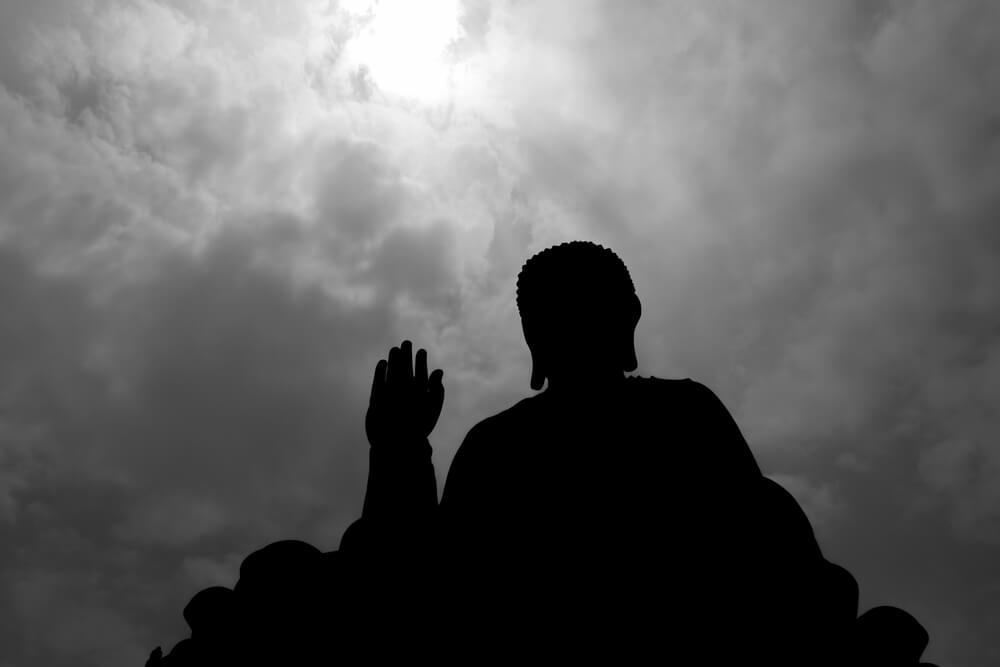Eastern philosophies have a very different idea of combat than western, for many of these lines of thought defeating an enemy does not mean undoing, eliminating or destroying it, for them winning is neutralizing the one who wants to hurt us. , and if it is possible to do so our friend.
This perspective may seem very strange to our culture. Unfortunately, in general, victory over our opponents is associated with a feat that should make us happy.
- This is because the idea prevails that results are more important than processes or that personal exaltation is more important than joint growth.
The problem is that defeating an enemy byulling or damaging it is often a temporary and very relative victory. Basically, we feed this external enemy and keep the most negative part of ourselves.
We may be able to get immediate satisfaction or a specific good, but at the same time, we will have reinforced all the destructive feelings within ourselves and in others.
“Full victory occurs when the army does not fight, the city is not harassed, the destruction does not last long and, in each case, the enemy is defeated by the use of the strategy. -Sun Tzu-
Enemies can be external or internal. Zen tells us that internal enemies are much more dangerous and destructive than external enemies, these internal enemies are anger, pride, hatred, etc.
All these passions capable of blinding us can lead us to commit real madness, actions that completely harm us.
Do external enemies, on the other hand, have limited power over us?Unless we give them an excessive presence in our lives, they begin to defeat us exactly when they manage to activate our internal enemies.
Under the states of rage and hatred, we lose the main tool we have: our intelligence.
Therefore, the Orientals teach us that it is not possible to defeat the external enemy without first conquering the interior, if we do not, we are completely subject to the influence and determination of our external enemies, in a word, we give them a first victory.
Zen philosophy also invites us to analyze what the real enemy is, he argues that he is not really a person full of envy, selfishness or ambition and that he wants to hurt us.
In fact, we face envy, selfishness, ambition, or any of these destructive feelings, and these feelings and passions are in each other, but they can also be within us.
In this sense, defeating the enemy means overcoming these basic feelings and emotions, regardless of carrier or intentions. For Zen Buddhists, each of us helps create more order or chaos in the universe, depending on how we act.
Conflict leads to chaos. And chaos also ends, sooner or later, affecting us. Each action generates a reaction and hateful actions increase hatred. Zen proposes defeating the enemy, not defeating him. Conflict is always unnecessary and very exhausting, and it leads to greater decomposition in the world.
According to Zen, all actions to defeat the enemy must be designed to neutralize it, i. e. block its chances of action. Let’s look at an example.
If someone makes an offensive comment to you and you don’t allow them to offend you, you’ve neutralized that enemy, if they try to hurt you and prevent it from happening through rejection, you’ll start building an obstacle to block it.
This is impossible to achieve if we do not sufficiently work this attitude in ourselves, this work involves taking some distance from these negative passions and feelings, and also giving compassion to understand the needs and limitations of those who go through life wanting to harm others.
As in Zen, in martial arts also wins the one who manages to dodge the fight, if both sides learn from the confrontation, then we can talk about victory.
The strategy is based on making the enemy understand that he is spending his forces unnecessarily, that your struggle is useless because your hatred, in the end, does not harm the other, only leads you to waste your own energy.

